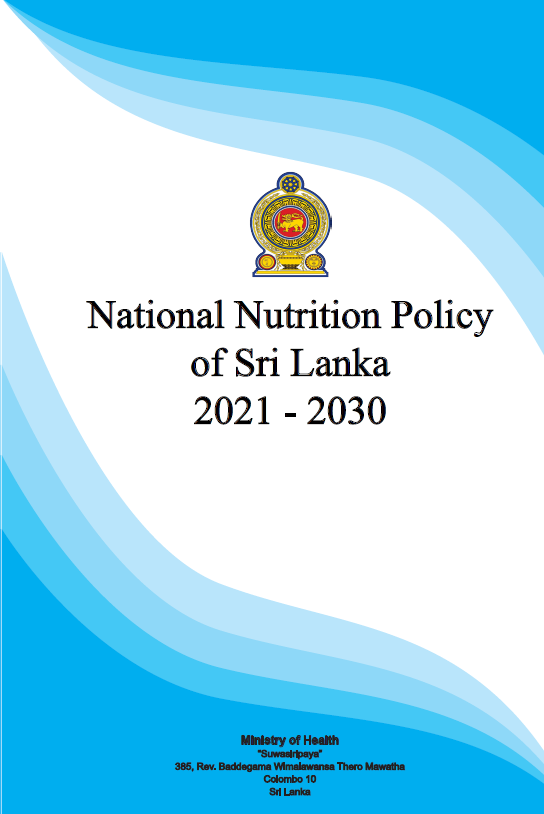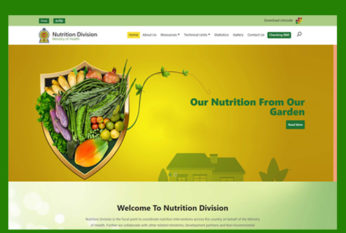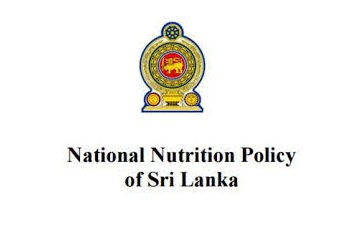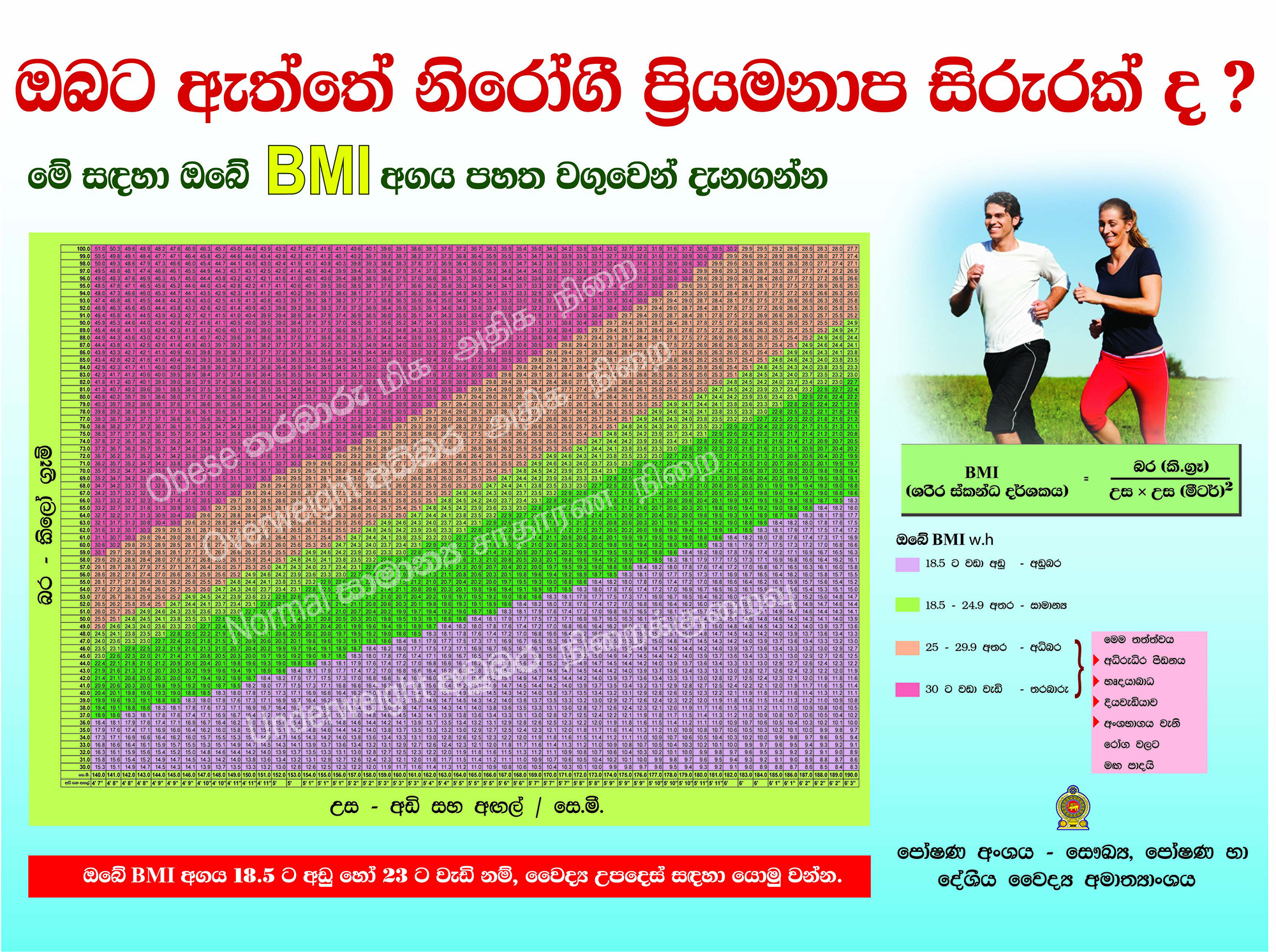Welcome to The Nutrition Division
Nutrition Division is the focal point to coordinate nutrition interventions across the country on behalf of the Ministry of Health. We also collaborate with other related ministries, Development Partners and Non-Governmental Organizations to conduct nutrition activities.
Our major responsibility is the development and implementation of nutrition related policies including National Nutrition Policy, relevant strategies and guidelines.
The Nutrition Division has worked relentlessly to serve the citizens of Sri Lanka to build a nutritionally steadfast nation.

Launch of the ‘National Nutrition Policy 2021-2030’
The Nutrition Division of Ministry of Health has revised and developed the ‘National Nutrition Policy 2021-2030’ in view of ending all forms of malnutrition by 2030. This is the revised version of the National Nutrition Policy issued in 2010, which is aligned with the proposed policies and procedures for the decade 2020-2030.
This revised policy has been developed through all multi-sectoral collaboration and partnership. This policy consists of strategic plans and policies which are essential to maintain the optimal nutritional status of all Sri Lankans, safeguard food security, strengthen the legal framework to protect the right to safe food, prevent unethical marketing, and ensure safe and healthy food consumption at all times, including nutrition promotion in emergencies.
The launching ceremony will be graced by Honorable Minister of Health and this event will be held on;
Date : 3rd of May 2023
Time : 09.30 a.m. – 01.30 p.m.
Venue : Bandaranaike Memorial International Conference Hall (BMICH), Bauddhaloka Mawatha, Colombo 07

Food Based Dietary Guidelines: culturally appropriate evidence based recommendations to establish a basis for public food and nutrition, health and agricultural policies and nutrition education programmes to foster healthy eating habits and lifestyles.
14 Guidelines
- Add Colour to your daily meals balancing the correct amounts.
- Eat whole grains and their products including less polished or parboiled rice, instead of refined grains and products.
- Eat at least two vegetables, one green leafy vegetables and two fruits daily.
- Eat fish or egg or lean meat with pulses in every meal.
- Have fresh milk or its fermented products.
- Eat a handful of nuts or oily seeds daily.
- Limit salty foods and adding salt to food.
- Limit sugary drinks, biscuits, cakes, sweets and sweeteners.
- Water is the healthiest drink: drink 8 to 10 glasses (1.5 – 2.0 liters) throughout the day.
- Be active: engage in moderate physical activity at least for 150 - 300 minutes every week.
- Sleep 7-8 hours continuously every day.
- Eat clean and safe food.
- Eat fresh and home cooked food: limit processed and ultra-processed foods.
- Always read labels of packaged food.

Launch of the ‘National Nutrition Policy 2021-2030’
- Finished
-
LocationBMICH (Bandaranaike Memorial International Conference Hall), Bauddhaloka Mawatha, Colombo
The Nutrition Division of Ministry of Health has revised and developed the ‘National Nutrition Policy 2021-2030’ in view of ending all forms of malnutrition by 2030. ...
Read More
National Nutrition Month 2022
- Finished
-
LocationAuditorium, National Blood Transfusion Service
Nutrition Month 2022 theme is “Nutrition at low cost: Know, Find Alternatives, Grow and Share” and the objective is to overcome the nutritional vulnerability due to the current economic crisis. ...
Read More
National Nutrition Month 2021
Family Health Bureau, 231 De Saram Pl, Colombo 01000- Finished
-
LocationAuditorium, Family Health Bureau
Nutrition Month 2021 will be held under the theme of “Nutrition for Protection'' with the emphasis on achieving proper nutrition through healthy eating during this COVID 19 pandemic era. ...
Read More
The launching of our website
Bandaranayake Memorial International Conference Hall- Finished
-
LocationBMICH
Nutrition Division is the focal point of coordination of all the nutrition related activities in the Ministry of Health. We are happy to announce the launching of our website on 10th December, 2020. ...
Read More
National Nutrition Policy (NNP)
- Finished
-
Location-
Food and nutrition security of the country need to be achieved by fulfilling the dietary needs of the population with daily utilization of diversified safe food in adequate quantity... ...
Read More
Elderly Nutrition
- Finished
-
Location-
The “National Nutrition Quality Standards for Residential Care”, the “Guidelines for Implementation of National Nutrition Quality Standards for Residential Care for Oder People”... ...
Read MoreWhat is the body mass index (BMI)?
The body mass index (BMI) is a measure that uses your height and weight to work out whether your weight is healthy. BMI is calculated by dividing an adults’s weight in kilograms by their height in meters squared. For example, A BMI of 25 means 25kg/m2. Read More


